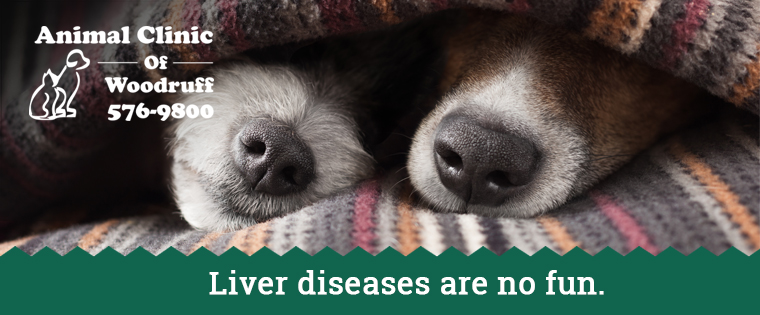Hepatitis means an inflammation of the liver. In pets, as in humans, the liver is an essential organ in the body. It helps digest and metabolize food, and clears the body of toxins. The liver also produces bile, which is necessary for digestion.
Infectious Canine Hepatitis (ICH) is a type of hepatitis caused by a virus, specifically the canine adenovirus type 1 (or CAV-1). The CAV-1 is not contagious to humans or cats. Thanks to the success of vaccinations, it’s a rather rare disease in the U.S. now.
How is ICH spread?
The hepatitis virus is spread through body fluids of an infected dog, including saliva, urine and feces. Dogs who sniff, lick, eat or breathe in an infected dog’s fluid may contract the virus, which travels to their tonsils and then infects the liver and kidneys in 4-7 days. Dogs can be contagious up to a year after recovering from the virus, so it’s important to protect your dog early.
How do I know if my dog has infectious hepatitis?
Symptoms of CAV-1 are subtle and can be hard to spot. Dogs may seem depressed or lethargic, have a low fever, or stop eating. Dogs can also develop a cough, and you may see swelling or a bluish color to the eyes. More problems occur if the virus spreads to the liver or kidneys, which can result in jaundice, vomiting or bleeding. If your dog seems to be “off” – acting tired, less friendly to be touched, or not eating, it’s worth it to make an appointment with the vet. The veterinary office will run blood tests to measure liver enzymes and figure out if there’s an infection.
Is there a cure for ICH?
There is no cure for infectious canine hepatitis. Sick dogs can be cared for and given IV and/or antibiotics, but this will only treat, not cure, the disease. Thankfully, CAV-1 is not too serious, and most dogs usually recover from ICH within a few weeks. However, some dogs can develop chronic eye, liver or kidney problems because of it.
How do I prevent my dog from getting hepatitis?
While some types of hepatitis cannot be prevented, you can vaccinate your dog against ICH. The vaccine actually contains the CAV-2 virus, but it protects dogs from CAV-1. Puppies are usually vaccinated at a young age, and are then protected for life. The vaccine does not require boosters.
If you have a puppy or an older dog without records of vaccinations, bring them in today for a canine hepatitis vaccine and other important vaccinations. Make an appointment now at Animal Clinic of Woodruff via our online form.













